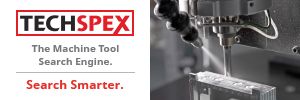
Paul Elio, founder and CEO of Elio Motors, plans to launch this vehicle that will be built in the former GM Shreveport Stamping and Assembly plant sometime in 2017. Note well that this isn’t a “niche†vehicle in terms of what he anticipates in terms of production volume, as they’re creating capacity that will allow the build of 1,000 units per day, two shifts.
Related Topics:
- Automotive Design
- Automotive Engineering
- Automotive Production
Related Suppliers
BASF Corporation
Continental Corp.
Henkel Corp.
Lear Corporation
Robert Bosch Corp.
Paul Elio says he recently read The Innovator’s Dilemma by Clayton Christensen (Harvard Business Review Press; 1997) and he thought that it was, in effect, telling the story of Elio Motors (eliomotors.com), the company that Elio established in 2009 to create a transformative motor vehicle.
The subtitle of Christensen’s book is When New Technologies Cause Great Firms to Fail. As Christensen explains, in many instances, well-managed companies pay too much attention to what their customers are asking for and consequently make investments in producing more and better products of the type that a given company is already making.
Christensen argues: “There are times at which it is right not to listen to the customer, right to invest in developing lower-performance products that promise lower margins, and right to aggressively pursue small, rather than substantial markets.â€
So the vehicle that Elio and his team—a team that includes such top-notch suppliers as Continental (continental-automotive.com), Roush (roush.com), IAV (iav.com), Henkel (Henkel-adhesives.com), Bosch (bosch.us), BASF (basf.com), Guardian (guardian.com) and Lear (lear.com)—have developed seats two people (in tandem), not four or more; it has three wheels, not four; it will be priced at approximately $6,800, not a multiple of that.
Elio doesn’t think that his vehicle will be for everyone necessarily, but could be ideal for college students who are looking for inexpensive transportation or for people who have considerable disposable income who would like something to buzz around in on weekends. “A rich person won’t buy a Yaris,†Elio said, “and a college student can’t afford to buy a Tesla.†And no, it doesn’t have an electric motor but a 3-liter internal combustion engine that was specifically engineered for the car (which is, confusingly, named the Elio). The vehicle is expected to return on the order of 84 mpg. Top speed for the vehicle is on the order of 100 mph or greater.
Elio, a graduate engineer from the then-General Motors Institute, is enthusiastic about building a vehicle in the U.S. so Elio Motors has managed to secure space in the former GM truck assembly plant in Shreveport, Louisiana. GM Shreveport Assembly and Stamping measures 3.2-million square-feet; Elio Motors will be renting 997,375-square-feet of that for the production of its vehicles.
The Elio is not a tiny vehicle, as its overall length is 160.5 inches, or five inches longer than the aforementioned Toyota Yaris.
Elio says that production will start in 2017, predicated on the full development of the vehicle (they unveiled at the end of June the first of what is to be a total of 23 testing and validation vehicles, which will precede the next step, the build of 100 pre-production vehicles) and funding (Elio has been innovative in this regard, using everything from crowdsourcing to the U.S. Regulation A+, which allows the general public to invest in private companies, not just accredited investors). Elio says that they’ll have a two-shift capacity of 1,000 vehicles per day or about 250,000 per year.
While that is a considerable volume, he points out that they have 55,000 reservations—people have put down money that’s non-refundable.
Elio has plans for a variety of non-traditional approaches, ranging from retail centers in strip malls where people can order a vehicle to their specification and then pick it up the following day (there will be a series of nine marshalling centers strategically located in relation to the retail centers where the final work on the cars will be performed) to the use of wraps for exterior color (in addition to seven paint colors).
Service for the vehicles will be performed at Pep Boys.
You may have noticed that the word “car†hasn’t been used here. That’s because while Elio says it is being built to “automotive standards,†it is going to be certified as a motorcycle (while there are other three-wheeled motorcycles, they are open-topped and don’t have things like an enclosed cabin and power windows and locks.
Elio says that only 7 percent of the U.S. driving population knows that Elio Motors exists (which seems high), yet they’ve been able to garner the 55,000 reservations. Consequently, he believes that once people are aware of the vehicle, there will be more tangible interest.
After E1A, the first engineering vehicle, was unveiled to the public it was going to be taken to a Continental Automotive facility for development work.
According to Clayton Christensen, the technologies that can supplant the existing companies—at least over time—are “disruptive.†Of them he writes: “disruptive products are simpler and cheaper; they generally promise lower margins, not greater profits. Second, disruptive technologies typically are first commercialized in emerging or insignificant markets. And third, leading firms’ most profitable customers generally don’t want, and indeed initially can’t use, products based on disruptive technologies.â€
The Elio seems to check the first and last boxes (although, as previously mentioned, Paul Elio believes that even a more affluent car owner might be intrigued by having an Elio to run errands in).
Whether it will truly be disruptive remains to be seen.—GSV
Â








